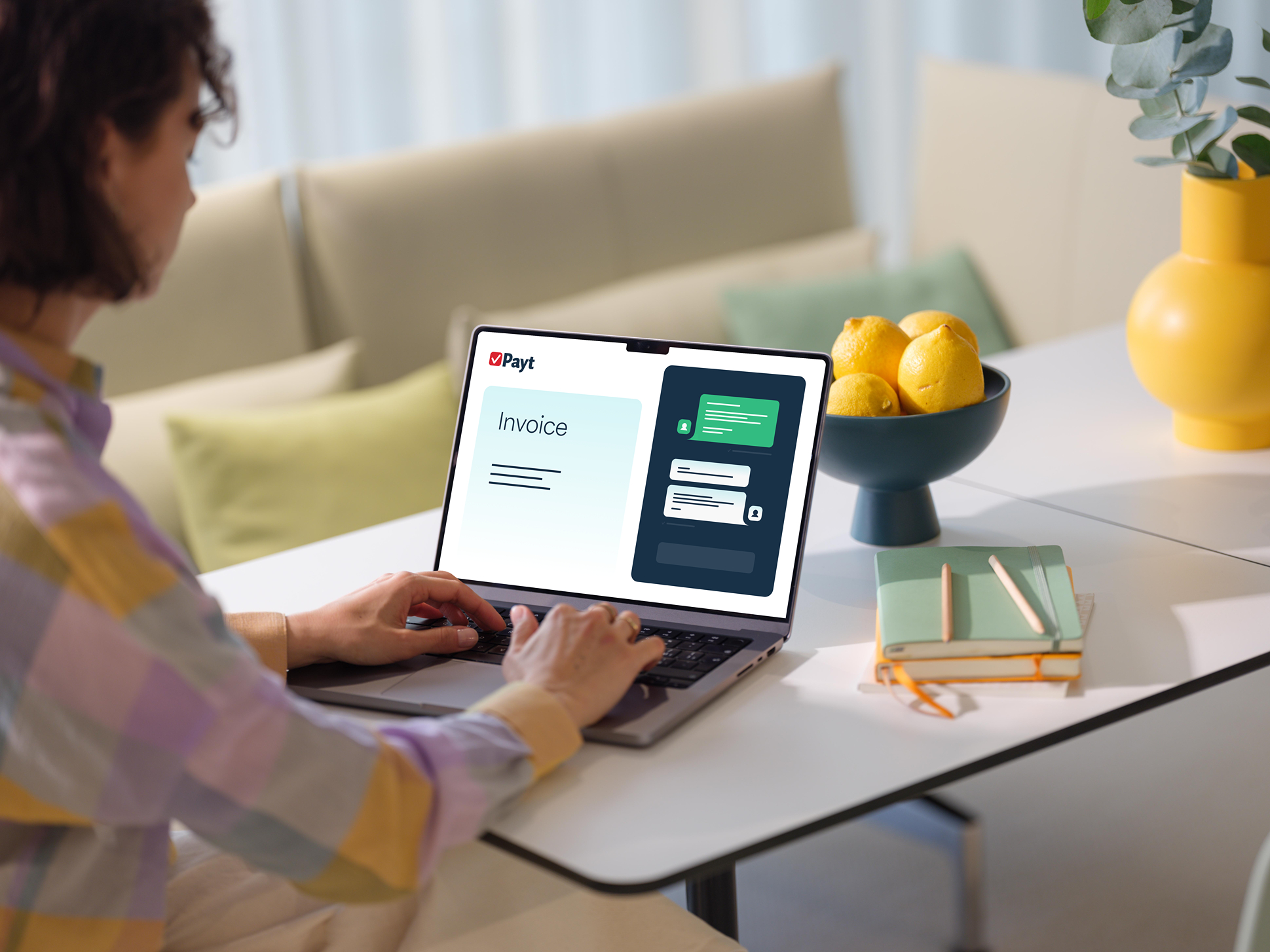Thinking of outsourcing your accounts receivable management? A smart move—particularly for companies aiming to streamline internal processes and reduce operational costs. By handing over the time-consuming task of chasing outstanding invoices to experts, you gain not only efficiency and cost savings but also the assurance of professional and effective receivables management. Discover how Payt can simplify the process and improve your cash flow.
Why outsource accounts receivable management management?
Accounts receivable is a vital component of any business, but it’s often time-consuming and complex. Many organisations experience issues with late payments or difficult collections, both of which can put pressure on cash flow. By outsourcing your accounts receivable management, you benefit from our specialist knowledge and tools for optimising collection processes.
This enables you to focus on your core business activities, without the worry of unpaid invoices, while we handle the rest.
Efficiency and cost savings
Managing debtors internally can drain your time and resources—especially if you don’t have a dedicated credit control team. Outsourcing not only reduces your personnel costs but also eliminates the need for training or maintaining internal systems.
When you outsource to Payt, you benefit from economies of scale. Our automated systems and structured processes ensure a faster and more efficient collection cycle. Because our systems are designed to handle high volumes of invoices, payments are typically received more quickly—helping to keep your business financially healthy.
The convenience of debtor management with Payt
Outsourcing your receivables management to Payt means having access to a fully automated system that streamlines your entire process. You’ll always have full visibility of your debtor portfolio, from initial invoice to collection, without needing to take action yourself.
This allows you to stay focused on your business, while Payt ensures the process runs smoothly behind the scenes.
Payt’s accounts receivable software also includes contract management and a clear overview of outstanding balances. Your customers can access a self-service portal to view and query their invoices, enhancing transparency and improving customer relations.
Automating your receivables process
At Payt, we make it easy to automate your accounts receivable management, creating a more efficient workflow and reducing the likelihood of errors. By automating repetitive tasks—such as sending payment reminders and final reminders—you’ll free up time to focus on higher-value tasks.
You’ll also avoid missed follow-ups, as our system ensures that customers are reminded in good time about outstanding payments.
Additionally, Payt integrates seamlessly with your existing accounting software, allowing debtor management to become a natural extension of your current processes. The platform is scalable and ideal for organisations of all sizes.
Experience the benefits: Book a demo
Interested in how Payt can help you with outsourced accounts receivable management? Book a free demo today. We’ll show you exactly how our system works and how it can enhance your cash flow and boost operational efficiency.
Experience for yourself how Payt’s automation and professional communication tools can transform your debtor management.
Frequently Asked Questions (FAQ)
Why should I outsource my debtor management?
Outsourcing debtor management saves time and money and ensures that experts efficiently manage your outstanding invoices. This reduces the pressure on the internal team and increases the chances of timely payments.
How much does it cost to outsource debtor management?
The costs depend on the service provider and the size of your claims. Generally, outsourcing is more cost-effective than internal solutions, especially as you benefit from economies of scale and expertise without large investments.
What are the benefits of outsourcing debtor management to Payt?
Payt offers an automated system that streamlines the debtor management process, maintains your customer relationships, and efficiently manages payment processing. It ensures transparency, scalability, and seamless integration with existing systems.






